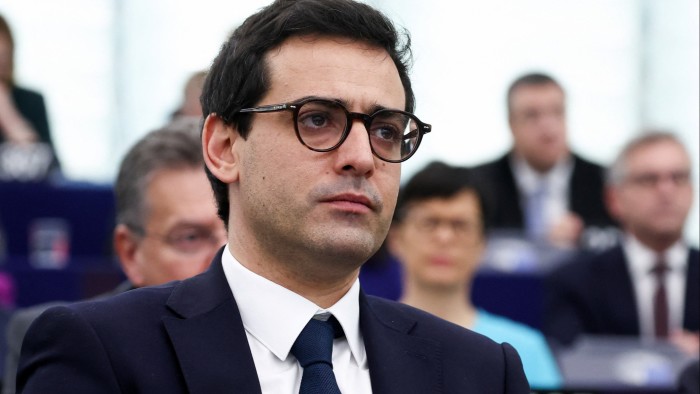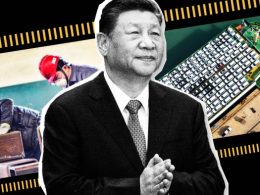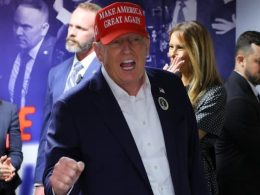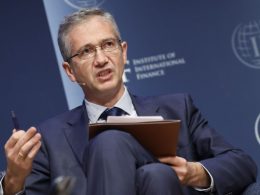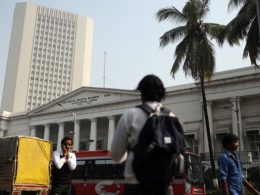Stay informed with free updates
Simply sign up to the EU economy myFT Digest — delivered directly to your inbox.
The EU’s new industry chief has called for a “Europe first” strategy for key business sectors, in a bid to prevent the bloc becoming collateral damage in a potential global trade war sparked by Donald Trump.
European Commission vice-president Stéphane Séjourné, a former French foreign minister and close ally of President Emmanuel Macron, told the Financial Times that Europe must act on the “offensive” to promote its strategic business interests and avoid being flooded by heavily subsidised imports from China.
“I fundamentally believe that Europe has everything to gain from being open to the world,” said Séjourné, who is in charge of the bloc’s industrial policy. But “when China says ‘Made in China’ or the US says ‘America First’, we must say: ‘Made in Europe’ or ‘Europe First’”.
The new commission has pledged to restore the bloc’s competitiveness over the next five years, a task that will become harder if US president-elect Donald Trump acts on his threats to slap sweeping tariffs on all imports, tear up trade deals and slash regulations for US businesses.
Séjourné said his “biggest fear” was that Europe would become “a collateral victim of a global trade war”.
“If all the world markets close, the only remaining open market cannot be the European market,” he said. “If the United States closes to Latin America, closes to India, closes to China, the European market cannot be the destination for all the overcapacities in the world, otherwise we will find ourselves in a situation of short-term economic crisis.”
Brussels must send a “firm message to the United States to tell them that, today, we see no reason to devalue our trade discussion and our trade exchanges”, he said. “The new administration must realise that . . . they also have nothing to gain from having a trade war.”
He brushed off criticism that the EU was pursuing a protectionist agenda.
“It’s not at all about protectionism because Europe really has no interest in a global trade war,” he added. “We have a strategic and technological interest to develop our own industries, to create employment and to create growth.”
Séjourné acknowledged the “negative music” about Europe’s economy, which has been hit in recent weeks by lay-offs from carmakers and steelmakers, and the collapse of Swedish electric battery manufacturer Northvolt, which was heralded as the continent’s green transition bellwether.
He said the commission would focus efforts on strategic sectors including steel, car manufacturing and aerospace, as well as clean technologies.
“It will be necessary to do so in a very targeted manner, on important strategic sectors. But you have to do it offensively and not defensively,” he said.
“Historic” industries must be protected because they provide “very important support” for the clean technologies critical to the green transition, Séjourné argued.
“In reality [steelmaking] is strategic because there are no wind turbines without steel. There is no car production without steel,” he said. “So, if we want to develop other industries, we need a steel industry.”
At the same time, clean technologies such as hydrogen and digital technologies could be “plugged in” to the most heavily polluting industries to cut emissions.
The new commission, which took office on December 1, would define the critical sectors in its first 100 days, he said. Another key policy effort would be to finally bring together the bloc’s capital markets to create a better investment environment — a long-standing ambition that has been thwarted by objections from member states.
“We want to give life to a European industrial policy and an economic doctrine, which we have not had so far,” he said. “We have so far had a juxtaposition of different measures that were sometimes not coherent with each other.”
In a major blow to Brussels’ existing industrial strategy, Northvolt, the EU’s best-funded start-up, filed for Chapter 11 bankruptcy last week, resulting in hundreds of millions of euros of losses for investors including Goldman Sachs and the EU itself, which guaranteed about €300mn worth of loans to the company.
Séjourné said he wanted to reassure investors that “Europe will not abandon the battery industry”.
“We must not have remorse for having established this sector, for having helped and subsidised them and above all when they go through a technological problem not let everything we did in the past be destroyed just by the first difficulty,” he added.
Source link




